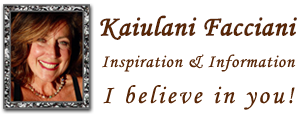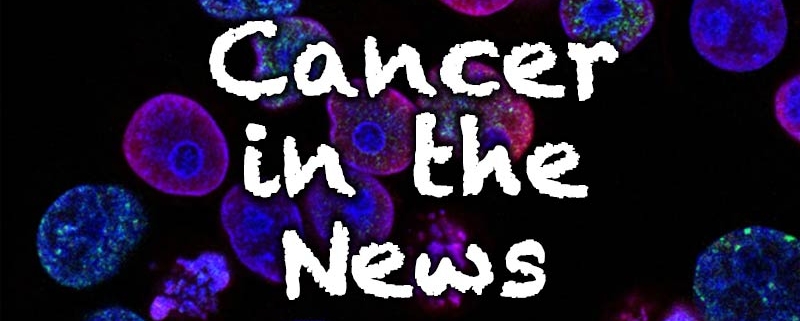Free Webinars, Aspirin, Going flat, Surgery & survival, Covid: remission & risk
13th issue: Contents
- 3 Free Webinars – Because knowledge is power
- Patients in Cancer Remission at High Risk for Severe COVID-19 Illness
- Aspirin linked to better survival rates for bladder and breast cancer
- How Your Diet Impacts Breast Cancer Risk
- Most Women Satisfied With ‘Going Flat’ After Mastectomy
- Adding Surgery to Standard Treatments Linked to Better Survival for Certain Types of Metastatic Breast Cancer
- Tool Predicts Severe Toxicity From Chemo in Breast Cancer
• The Global Cancer Symposium, put on by Radical Remission, February 8-14, 2021
Here are a few of the talks:
- Kelly Turner, PhD: What We Can Learn from Radical Remission Survivors
- Leigh Erin Connealy, M.D.: Your Cancer Diagnosis: From a Death Sentence to an Unlimited Pass to Life
- Veronique Desaulniers: Facing Your Fears: How to Tackle the Anxiety of a Terrifying Prognosis
- Rashid Buttar: Why We Get Cancer: The Vital Role of the Immune System to Fight Damaged Cells
- Elaine Gibson: Redefining the Impossible: Beating Stage 4 Cancer with an Integrative Approach
- William Pawluk: The Hidden Dangers of EMFs and What We Can Do to Shield Ourselves
- Thomas Lodi: What is Cancer? Beyond “Rapid Cell Growth” – The Truth About Why and How Cancer Grows
• Adrenal Health Summit, February 1-7, 2021, free eBook downloads
“Unexplained brain fog, weight gain, digestive problems, poor sleep and exhaustion? Your adrenals could be overtaxed.”
My two cents: Whenever I take care of my adrenals, I am glad I did. I am looking forward to learning more.
• The Body Electric, free, February 22-28, 2021, free eBook downloads
“Recognizing that life is made up of energy (your biofield) — and that energy has its own resonance — biofield medicine sees disease and suffering as disruptions. In a state of disease, you have simply lost your optimal frequency.”
My two cents: As Nikola Tesla said, “If you want the secrets of the universe, think in terms of energy, frequency and vibration.” I’m a big believer that everything boils down to energy. Several modalities of alternative healing focus on balancing energy fields within your body. I have greatly benefitted from some, as I describe in my first book, Whatever Doesn’t Kill You Makes You Strong. I have no endorsement of this webinar but I will tune in.
• Patients in Cancer Remission at High Risk for Severe COVID-19 Illness
“Patients with COVID-19, including both those with active cancer and inactive cancer, had higher rates of hospitalizations compared to non-cancer patients (55.2 percent vs. 29 percent), ICU admissions (25.7 percent vs. 11.7 percent), and 30-day mortality (13.4 percent vs. 1.6 percent). The findings underscore the importance of COVID-19 mitigation, like social distancing and mask wearing, and vaccinations for all patients, not just those recently diagnosed or with active disease.”
My two cents: Protect yourselves… be careful out there. Like you really need to add Covid to the equation.
• Aspirin linked to better survival rates for bladder and breast cancer
“Taking aspirin at least three times a week is associated with increased survival rates from bladder and breast cancer, new research has shown.”
My two cents: One theory is that aspirin blocks the COX-2 enzyme, which could play a role in progression of these cancers. There are some significant downsides. You should read the whole article before deciding if taking semi-frequent aspirin is right for you.
• How Your Diet Impacts Breast Cancer Risk
“The World Cancer Research Fund (WCRF) 2018 food-based dietary guidelines were associated with a lower risk of breast cancer: eat more whole grains, vegetables, fruit, and beans while limiting fast food, red and processed meat, and processed foods high in fat, starch, and/or sugar. A diet with a higher glycemic load and foods with a glycemic index greater than 55 were associated with increased cancer risk, especially breast cancer.”
My two cents: No news here, to my savvy audience, especially if you’ve read my book or my posts on nutrition and healing. What IS news is that this was published in CURE magazine and the role that what we eat plays in our healing is being accepted in the main stream. I was happy to see that, like me, they stress the importance of looking at this message as one of empowerment and not blame.
• Most Women Satisfied With ‘Going Flat’ After Mastectomy
“Women who did not have reconstructive surgery after mastectomy were generally satisfied with the decision. The strongest predictor of low satisfaction was perceived lack of support from a surgeon for the decision to ‘go flat’.”
My two cents: I have no opinion one way or another about which is better, but I feel strongly that women should have access to the information they need for their decision and that their decision should be respected. I thought it significant that a woman’s satisfaction with her decision was so tied to the amount of support she received from her surgeon. I’ve had many experiences with doctors who didn’t respect my decisions and I cringe when imagining what some women go through with this decision. May all healers support and respect their patients, especially during vulnerable times.
• Adding Surgery to Standard Treatments Linked to Better Survival for Certain Types of Metastatic Breast Cancer
“Having surgery along with systemic treatments or with systemic treatments and radiation therapy can improve survival for women diagnosed with metastatic hormone-receptor-positive or HER2-positive breast cancer.”
My two cents: Duh. I mean why would they even do surgery if it didn’t improve survival? I guess they needed this new study to tell them. Makes me wonder, though, why they’ve been doing surgery all along, it they didn’t know. Personally, I think of surgery as more effective and less toxic than most other western treatments. Like, why do toxins until you know that all surgical options have been exhausted? My humble opinion.
• Tool Predicts Severe Toxicity From Chemo in Breast Cancer
“A new tool for predicting the risk of severe chemotherapy toxicity in older adults with early-stage breast cancer outperforms existing models and should help older patients and physicians make treatment decisions with more confidence.”
My two cents: Chemotherapy may help some patients but it is clearly detrimental to some. I’ve lost too many friends to chemo that didn’t help them and sent them on a death spiral. I’m glad there is a new tool and an openness to evaluating risk vs. reward.
Cancer in the News has a posting frequency of once every two weeks, usually on Wednesday.


